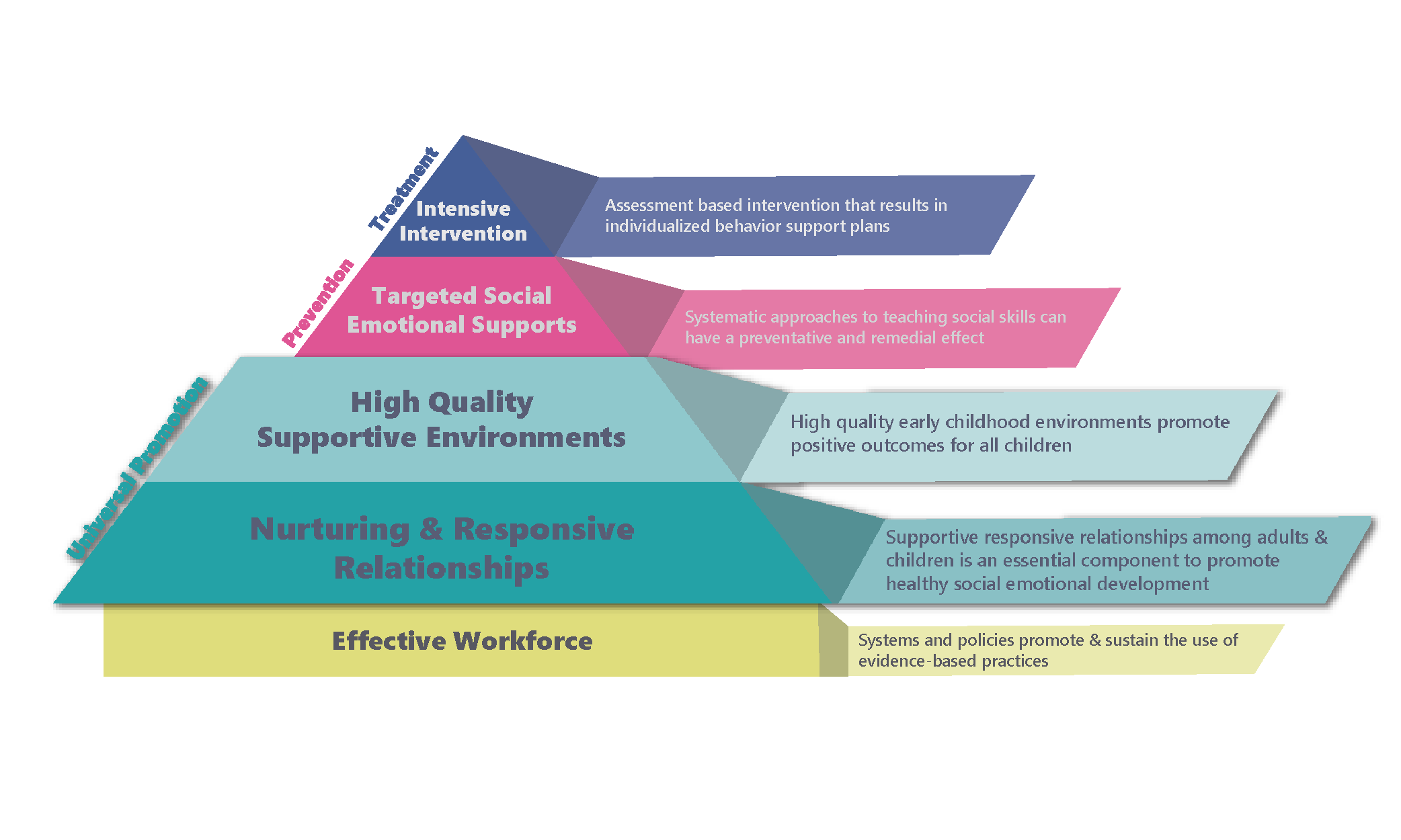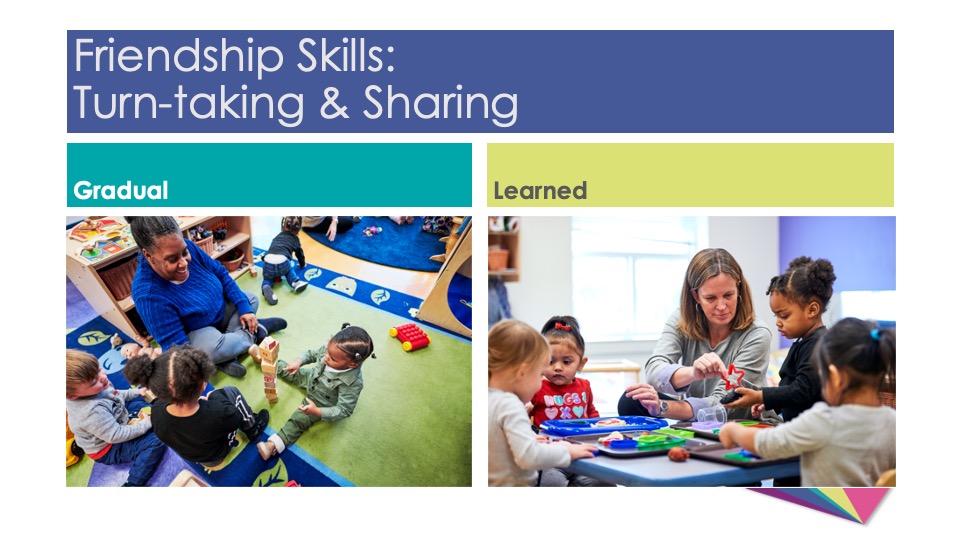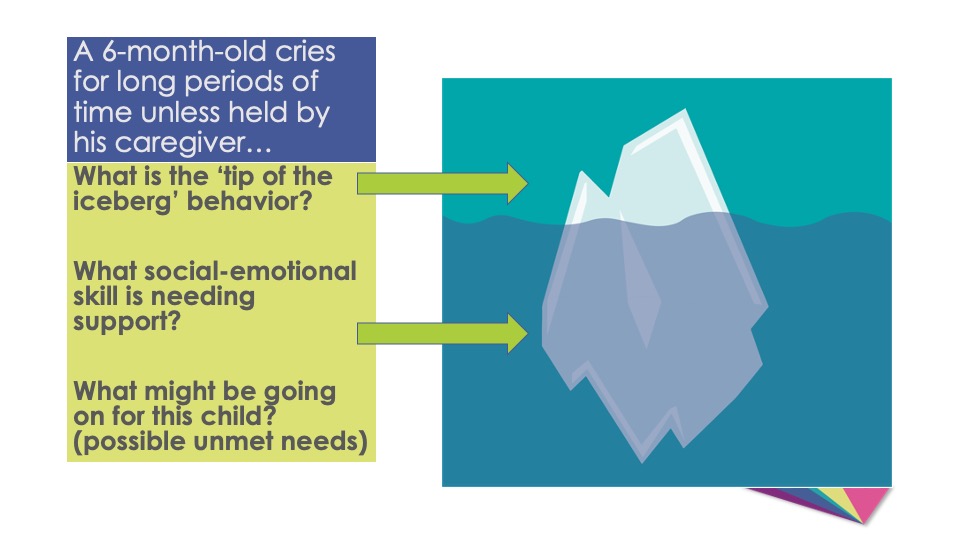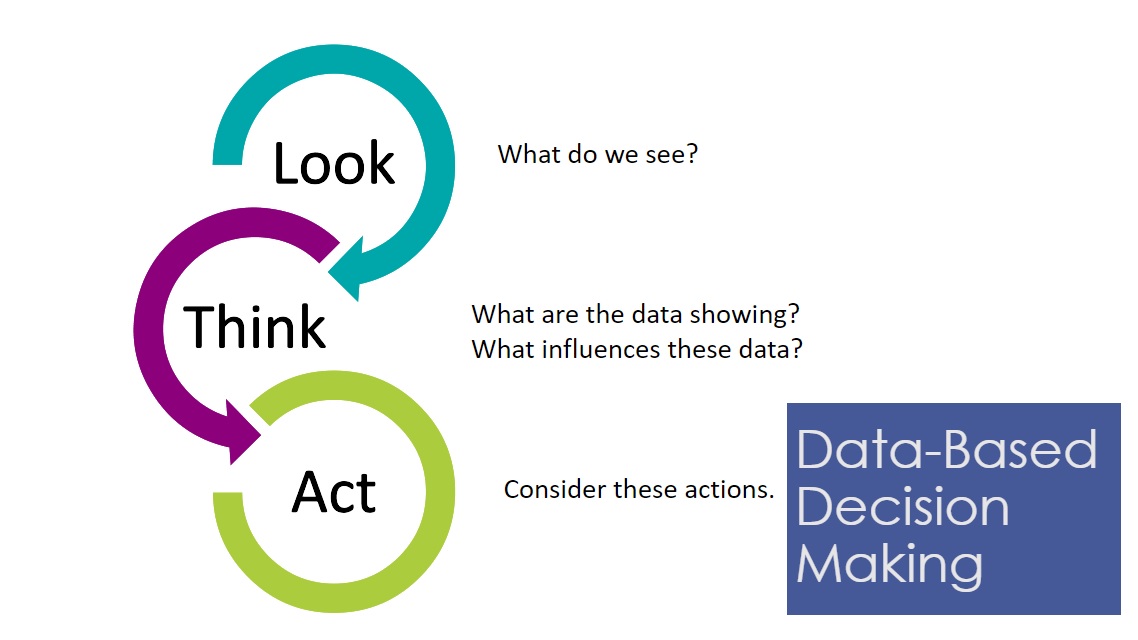TPITOS Trainings
NCPMI Opportunities
The National Center for Pyramid Model Innovations offers a variety of trainings and technical assistance, and also sponsors the annual NTI: Addressing Challenging Behaviors Conference.

The Pyramid Model Consortium
The Pyramid Model Consortium offers online learning modules, as well as offline training, to equip early childhood teachers to promote social-emotional development in their classrooms.
PRISM Tier 1 Trainings: Universal Promotion
PRISM trainings come with 3 primary components you will need to conduct a training: a PDF of the script, a PowerPoint with embedded videos, and a PDF with all handouts for the training. You can download a .zip file with all required components below, or click “View Materials” to preview materials and/or download individual components.
While the order of the training modules is intended to be flexible, the trainings are listed below in recommended order.
For a complete list of References, click Here.

1. Introduction & Understanding Social Emotional Development
As the first training module in the PRISM Professional Development Model, Understanding Social-Emotional Development will acquaint participants with the Pyramid Model, introduce important terms that will be used throughout the PRISM Training Modules, and lay a foundation to better understand the role caregivers play in young children’s social-emotional development.

2. Focusing on Relationships
In Focusing on Relationships, participants will explore the importance and complexities of developing relationships between caregivers, families, and children. Participants should leave understanding that social-emotional development develops within the context of relationships, so strategies to support development must prioritize building relationships. This training covers topics such as reflecting on participants’ past and current relationships, and addressing issues related to culture, diversity, and risk factors. It is recommended the trainer spend time reflecting on the discussion questions prior to the training to be prepared to share their own experiences and facilitate discussions.

3. Responsive Routines, Schedules, & Environments
In Responsive Routines, Schedules, & Environments, participants will learn how being intentional about daily routines and setting up the environment can help young child feel confident and secure, paving the way for social-emotional growth. Participants will learn how the physical arrangement, use of schedules and predictable routines and transitions, and having consistent expectations in the classroom can promote children’s active and safe exploration and learning and facilitate positive interactions among children with other children and with adults.

4. Understanding Child Behavior
Working with infants and toddlers can be challenging. In Understanding Child Behavior, participants will learn how to use observation to better understand child behavior. We will look at the many influences affecting behavior, then use this knowledge to examine our own beliefs and practice reframing our thoughts to better respond to challenging situations.

5. Teaching About Feelings
The ability to identify and understand emotions in appropriate, healthy ways is a skill that develops over time. In fact, many of the challenging behaviors we see in young children are evidence that they are still developing these types of skills. In this session, we will explore what the development of emotional literacy looks like and share a variety of strategies teachers can use to support and teach the children in their care about feelings.

6. Supporting Active Engagement
In the Active Engagement Module, participants will gain knowledge on how to sustain active engagement and engage unengaged infants and toddlers. By the end of the training, participants will be able to identify strategies that promote children’s engagement in interactions and why this is important to social-emotional development.

7. Promoting Peer Interactions
In the Peer Interaction Module, participants will gain knowledge on how to facilitate positive peer interactions and support the development of social and friendship skills. Topics include developmental stages of social and play skills, and how to encourage those skills with infants and toddlers in child care settings.

Challenging Behavior
After establishing a firm foundation with universal practices, caregivers will be ready to learn specific strategies to address challenging situations and behaviors in the classroom. Serving as a bridge between universal practices and targeted supports, Challenging Behavior dives deeper into the meaning of behavior, and how to be proactive by both preventing behaviors and teaching replacement skills for behaviors.

Targeted & Individualized Supports
This session focuses on ways that early childhood professionals can work together as a team to address individual child needs when universal supports are not sufficient to support social-emotional learning and prevent challenging child behavior. Participants will gain knowledge and practical strategies for identifying the need for targeted and individualized supports using universal screening, identifying and setting goals, developing a plan for implementing supports that includes “what, when, how to teach,” monitoring progress, and making data-informed decisions.

